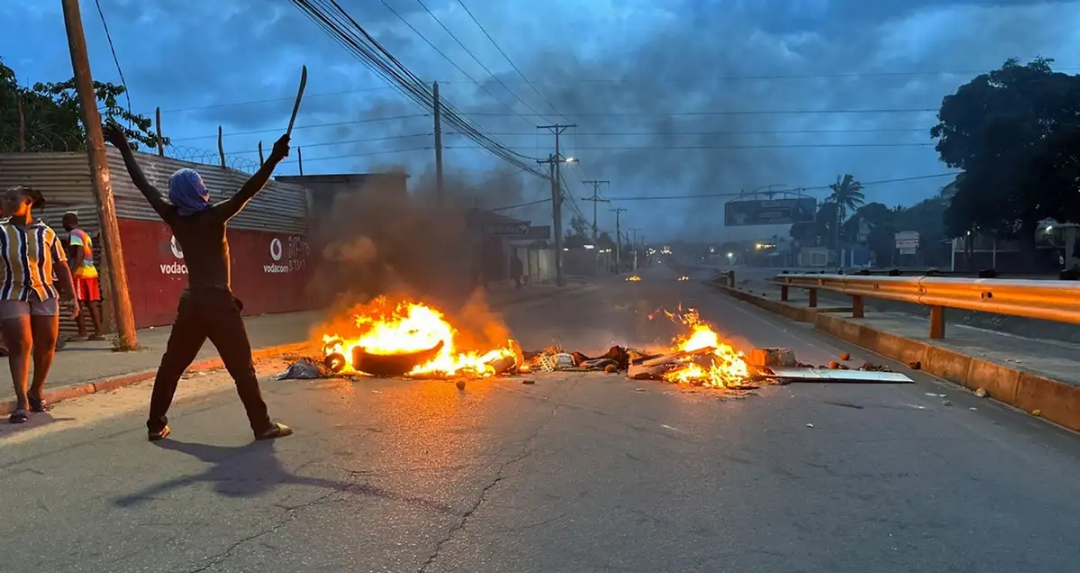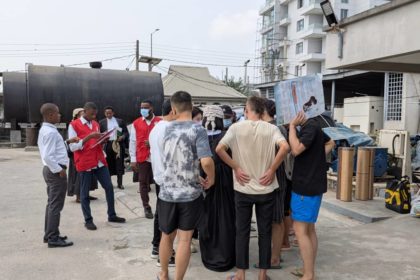By Adeyemi Adekunle
A violent prison riot in Mozambique’s capital, Maputo, has left 33 people dead and 15 injured, adding to the country’s escalating political crisis. The unrest, which erupted in a high-security facility, saw more than 1,500 inmates escape, according to the nation’s police commander. In a grim aftermath, security forces confirmed that only 150 fugitives had been recaptured as of Wednesday.
The riot, fueled by protests sweeping across the country, underscores the deepening divisions in Mozambique following contested election results. Protesters, outraged over what they allege were manipulated outcomes, have stormed multiple prisons nationwide, facilitating escapes in Beira, Nampula, and other major cities. These coordinated actions have created a volatile situation, leaving dozens more prisoners unaccounted for.
The unrest erupted after opposition leader Venâncio Mondlane, who secured 24% of the vote, rejected the official results, calling them fraudulent. The ruling party, FRELIMO, declared victory, intensifying long-standing tensions in a nation with a history of post-election disputes. The opposition’s allegations of electoral manipulation have resonated with thousands of citizens, leading to mass demonstrations and clashes with police.
Maputo has borne the brunt of the turmoil, with protesters blocking roads, setting tires ablaze, and clashing with heavily armed security forces. The death toll from these nationwide protests has risen to 56, with over 380 people injured, according to government reports. Despite a heavy security presence, the protests show no signs of abating.
In a rare public address, Mozambique’s President Filipe Nyusi called for calm, urging protesters to respect the rule of law while promising to investigate allegations of electoral fraud. However, critics argue that the government’s response has been inadequate and heavy-handed, with reports of excessive force used against demonstrators.
The prison break in Maputo has further destabilized the fragile situation. Witnesses described scenes of chaos as inmates overpowered guards and set fire to parts of the facility. Smoke billowed over the capital as sirens wailed and security forces scrambled to regain control. The escapees include individuals convicted of violent crimes, raising concerns about public safety and compounding the government’s challenges.
In response to the mass escape, police and military units have launched an intensive manhunt, erecting roadblocks and conducting house-to-house searches in affected areas. Yet, with so many prisoners still at large, fears of an increase in violent crime loom large over an already strained population.
Outside the capital, the unrest has spread to cities like Beira and Nampula, where public infrastructure has been targeted and economic activities disrupted. Businesses have shuttered, schools have closed, and residents remain indoors amid fears of further violence.
The international community is watching closely as Mozambique teeters on the brink of deeper instability. The African Union and the United Nations have called for dialogue and restraint, emphasizing the need for a peaceful resolution to the crisis.




